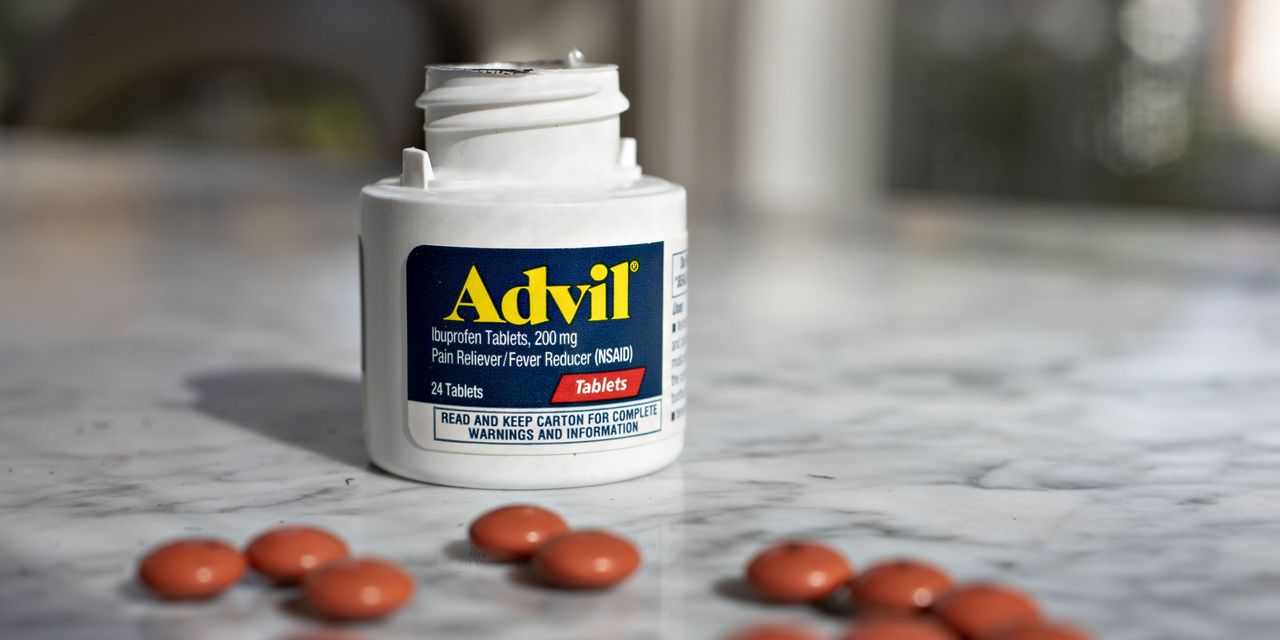
Unilever’s UL 1.14% bid for GlaxoSmithKline’s GSK 0.91% majority-owned consumer-health business is a bold move from a management team sometimes criticized for being timid. But the deal is risky and should stay on the shelf.
The maker of Hellmann’s mayonnaise and other consumer staples on Saturday confirmed a report in the London-based Sunday Times that it made an offer for the joint venture between Glaxo and Pfizer PFE -1.06% that makes Centrum vitamins and Panadol painkillers. Unilever shares fell 7% in early European trading Monday despite a second statement from the company giving strategic context for the move.
The business under consideration, which the two pharmaceutical giants forged from their separate consumer assets in 2018, is due to be demerged and separately listed later this year. Unilever’s third and latest £50 billion cash-and-share offer, equivalent to $68.3 billion at current exchange rates, valued the unit at 18 times projected earnings before interest, taxes, depreciation and amortization, according to Bank of America. Glaxo, which controls the business with a 68% stake, rejected this as too low.
Unilever is under pressure to fix its weak growth. It spent €16 billion, or $18.2 billion, on buzzy brands including Dollar Shave Club between 2015 and 2020, none of which have really moved the needle. Major acquisitions and disposals used to be difficult because of a dual-headed listing in both the U.K. and Netherlands, but this problem was finally resolved last year. It is now much easier for Unilever to use equity to fund new deals—a flexibility that also comes with greater risk of shareholder dilution.
To get its hands on the consumer-healthcare unit, Unilever would need to sweeten its offer at a time when its stock is trading at its lowest levels since early 2017. Glaxo and Pfizer are looking for £60 billion, according to the Financial Times. That would mean taking on high debt in addition to issuing shares, although Unilever hinted that it could sell its food brands to fund the purchase.
This deal may not be worth the stretch. Over half of Glaxo’s consumer-healthcare sales are in over-the-counter medicines like Advil painkillers. The global OTC market is growing just 2% to 3% annually, based on Barclays estimates—below Unilever’s own sales-growth target of 3% to 5%. Nor does management currently have the clinical and regulatory expertise needed to run this kind of business.
The balance of the Glaxo unit is made up of vitamin brands like Centrum, as well as oral-care products such as Sensodyne toothpaste. The market for nutrition supplements is more promising, with expected growth globally of around 5% a year as consumers become more health-conscious. It is also very fragmented: The top five players control just 14% of the world-wide vitamins market, according to Barclays. Unilever already makes around a billion euros in sales from brands such as SmartyPants Vitamins and OLLY Nutrition. Rivals Nestlé and Reckitt are also pushing into nutrition supplements.
The way news of the Glaxo bid came out, which forced Unilever’s executives to explain the logic of this surprising shift at short notice, may not have helped. But investors are right to be wary. Several major consumer staples deals have destroyed shareholder value in recent years, including Danone’s WhiteWave purchase and Reckitt’s Mead Johnson acquisition. While it shows ambition, the Glaxo healthcare bid seems the wrong remedy for Unilever’s growth problems.
Write to Carol Ryan at [email protected]
Copyright ©2022 Dow Jones & Company, Inc. All Rights Reserved. 87990cbe856818d5eddac44c7b1cdeb8
Appeared in the January 18, 2022, print edition as ‘Unilever’s Health Kick Is Wrong Remedy.’








